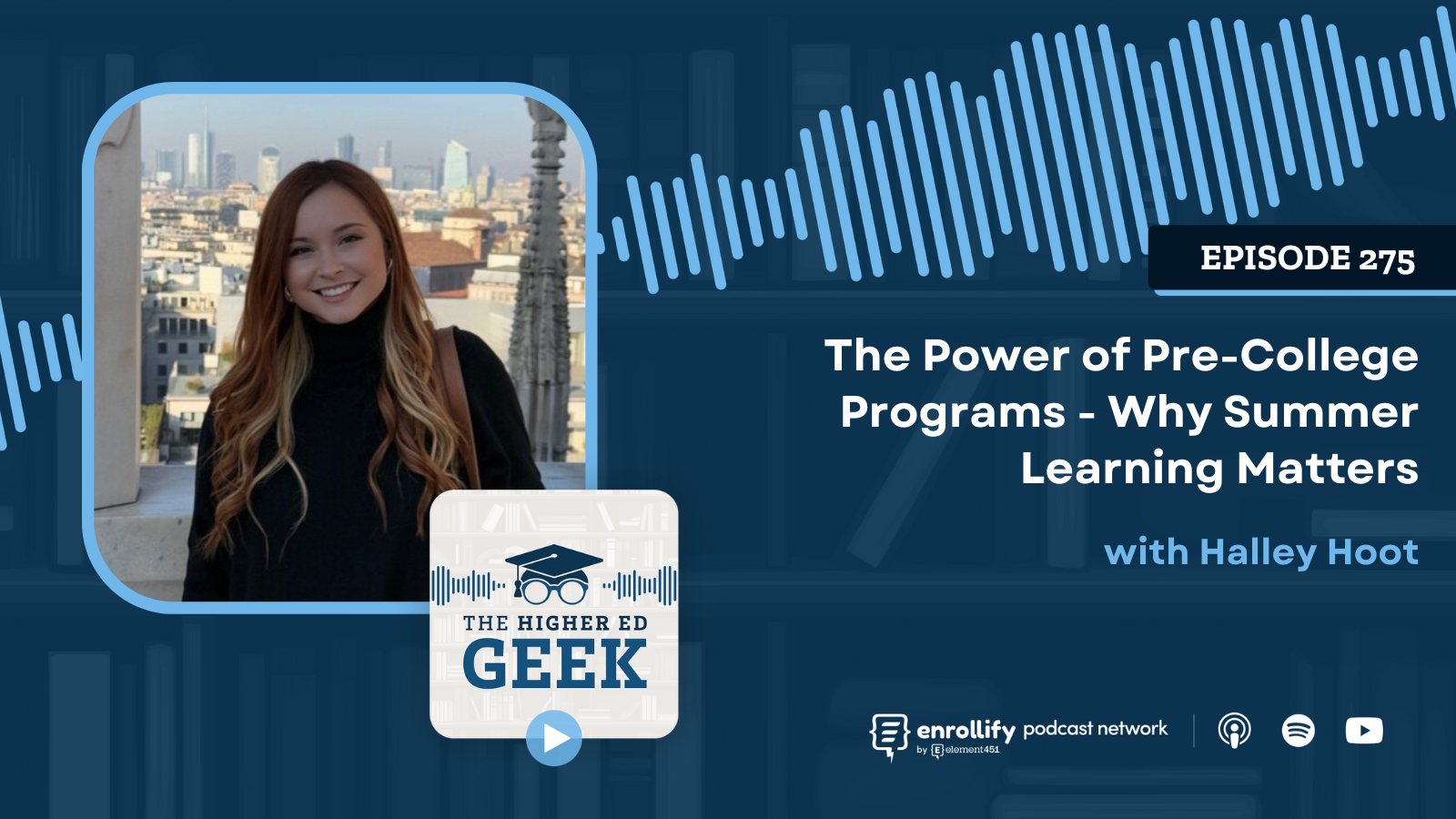About the Episode
About the Episode:
In this episode of The EduData Podcast, Jamie and Timothy dive into fresh data from the National Clearinghouse Research Center and the National College Attainment Network, analyzing the drop in college enrollment for Fall 2024. They explore how recent changes in FAFSA processes have impacted financial aid applications and discuss the alarming enrollment trends across different demographics. The hosts also examine how these trends might intersect with broader issues like the enrollment cliff and the Supreme Court's decision on race-conscious admissions.
Key Takeaways
- Freshman enrollment is down 5.8% in Fall 2024: Enrollment numbers have dropped sharply, particularly among 18–20-year-olds.
- FAFSA completion rates dropped 11.6%: A substantial year-over-year decline in FAFSA completion correlates with lower freshman enrollment.
- Disproportionate impact on low-income students: Institutions with high Pell Grant populations reported over 10% declines in freshman enrollment.
- Supreme Court's decision on race-conscious admissions may play a role: Enrollment decreases were observed across all racial demographics, with the steepest drop among white freshmen.
- Two-year public and HBCUs see enrollment growth: Public two-year colleges and HBCUs experienced modest enrollment increases, reflecting shifting student choices.
Episode Summary
What Is the Link Between FAFSA and Enrollment Decline?
Data released by the National Student Clearinghouse Research Center, analyzed by the National College Attainment Network (NCAN), paints a troubling picture for Fall 2024 freshman enrollment. According to Timothy, the National Clearinghouse’s data breakdown shows a direct correlation between FAFSA completion rates and college enrollment numbers. This year, FAFSA completion dropped by a staggering 11.6%, with about 200,000 fewer students completing the application. This significant decline directly correlates with a 5.8% drop in college enrollment, particularly affecting first-year students aged 18–20.
Jamie and Timothy highlight that a cumbersome FAFSA process, compounded by delayed deadlines, has likely discouraged many potential applicants from completing the form. The complexities surrounding FAFSA seem especially challenging for first-generation and low-income students who lack guidance through the financial aid process.
Who Is Most Affected by Declining FAFSA Completion and Enrollment?
The drop in FAFSA completion has hit low-income and first-generation students hardest. Jamie points out that institutions with high numbers of Pell Grant recipients, such as public four-year colleges and private universities, reported enrollment declines of over 10% from the previous year. Timothy underscores the added strain on low-income populations, specifically African American, Hispanic, and white students, who experienced the most significant declines. For Jamie, who has previously worked with underrepresented students in a TRIO program, the data affirms the longstanding challenges faced by low-income and first-gen students in navigating financial aid processes, especially when significant changes are introduced without adequate support.
The recent Supreme Court decision on race-conscious admissions may also play a role in these trends. While white freshmen showed the largest enrollment decline at 11.4%, African American and Latino students also reported declines, albeit less severe. Timothy notes that despite the challenges, HBCUs and Hispanic Serving Institutions (HSIs) actually saw enrollment gains, suggesting that these institutions may provide a more accessible pathway for students impacted by broader systemic changes.
Could the Enrollment Cliff Be Accelerated by FAFSA Challenges?
With predictions of an “enrollment cliff” on the horizon due to declining birth rates, the FAFSA-related enrollment issues come at a crucial time. Jamie emphasizes that as colleges brace for fewer traditional college-aged students, a streamlined and accessible FAFSA process is essential to mitigate further declines. Furthermore, he speculates that delays in high school graduation rates due to the pandemic may also contribute to a smaller applicant pool, though this remains to be studied in detail.
Both hosts agree that a simplified FAFSA process and increased support for prospective students are necessary to help reverse this enrollment decline. Jamie also notes that, moving forward, high school graduation trends may offer additional insights into how FAFSA completion and college readiness are affected by larger socio-economic factors.
Connect With Our Co-Hosts:
About The Enrollify Podcast Network: The EduData Podcast is a part of the Enrollify Podcast Network. If you like this podcast, chances are you’ll like other Enrollify shows too!
Some of our favorites include Generation AI and The Higher Ed Geek.
Enrollify is produced by Element451 — the next-generation AI student engagement platform helping institutions create meaningful and personalized interactions with students. Learn more at element451.com.
Attend the 2025 Engage Summit!
The Engage Summit is the premier conference for forward-thinking leaders and practitioners dedicated to exploring the transformative power of AI in education.
Explore the strategies and tools to step into the next generation of student engagement, supercharged by AI. You'll leave ready to deliver the most personalized digital engagement experience every step of the way.
👉🏻 Register now to secure your spot in Charlotte, NC, on June 24-25, 2025! Early bird registration ends February 1st.















